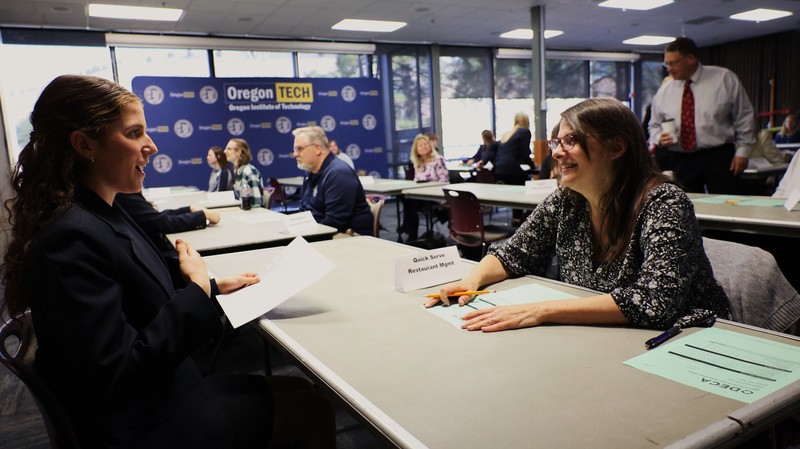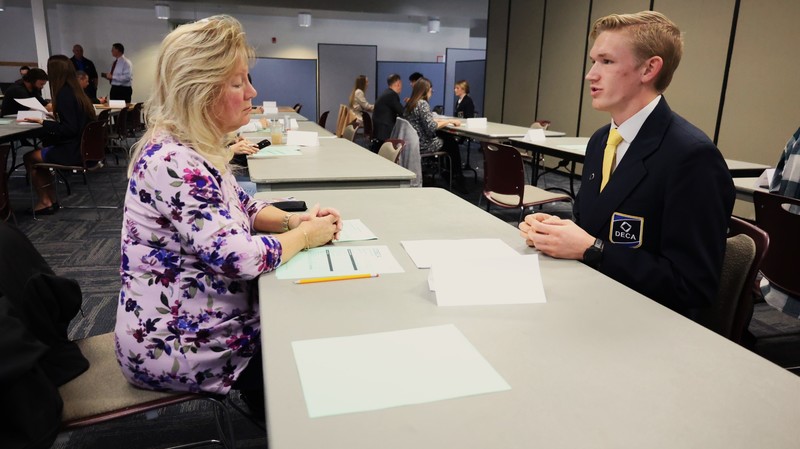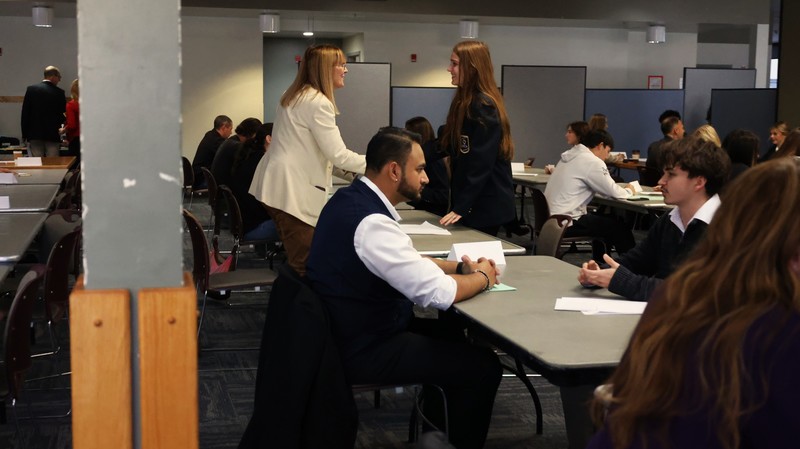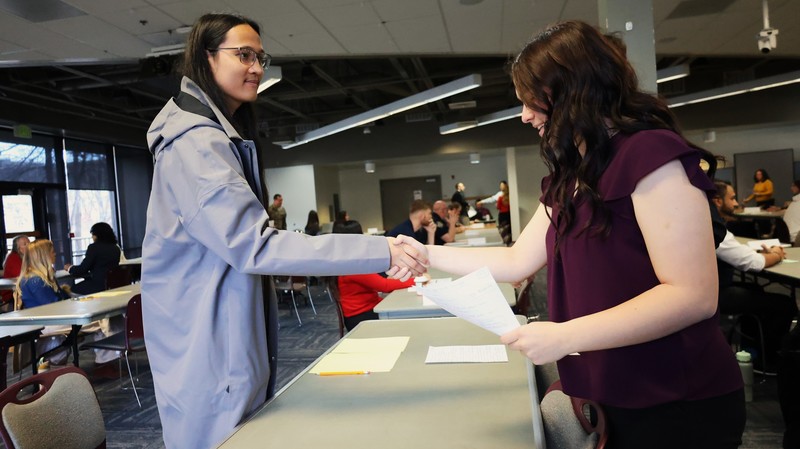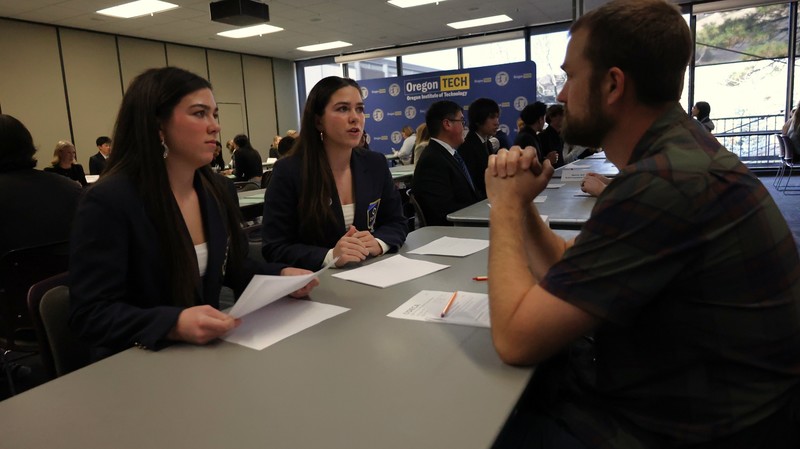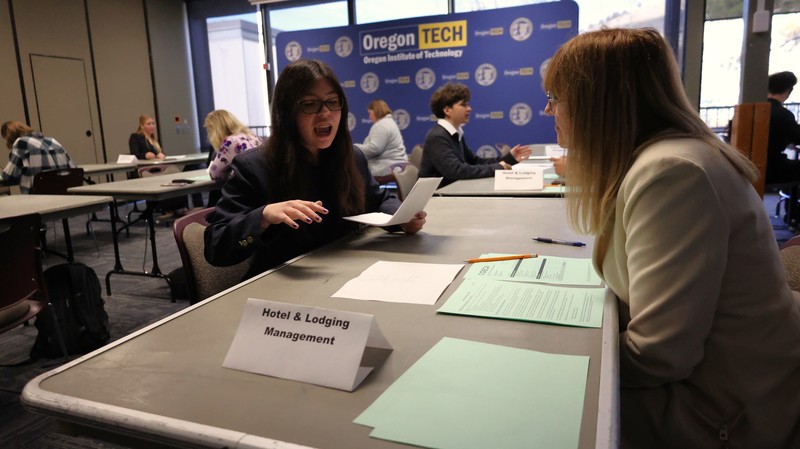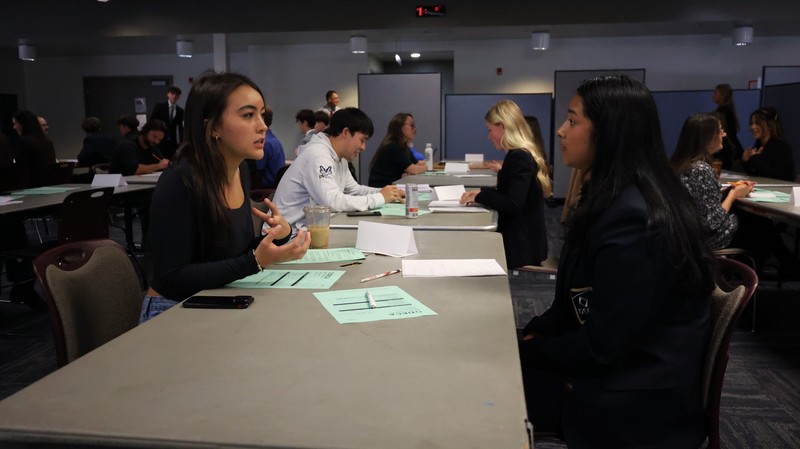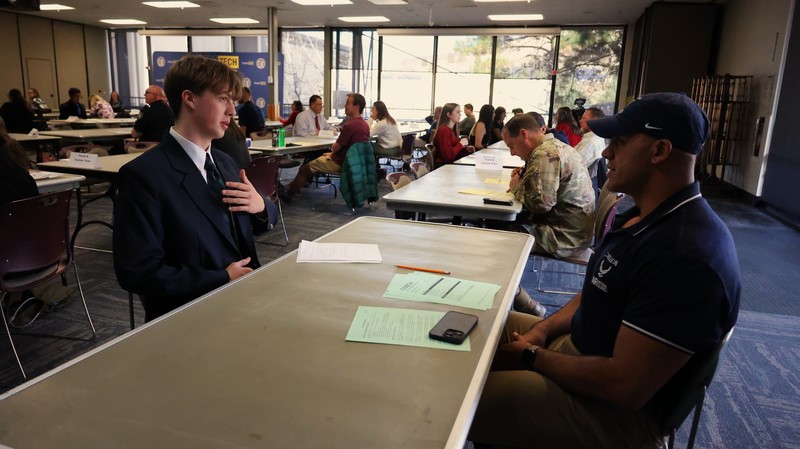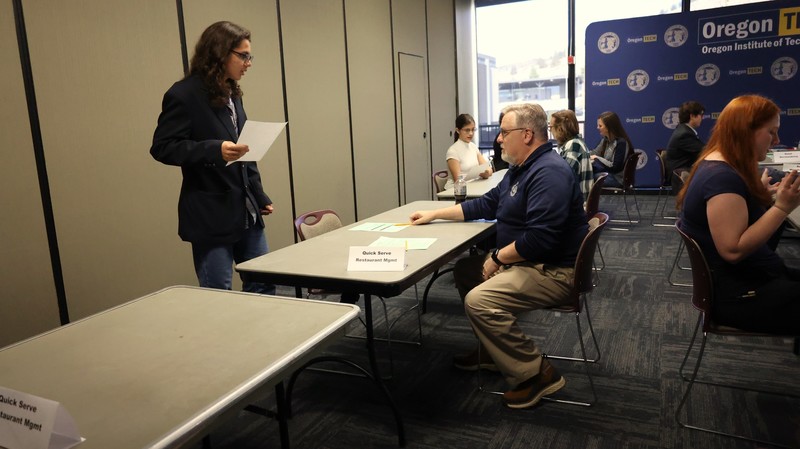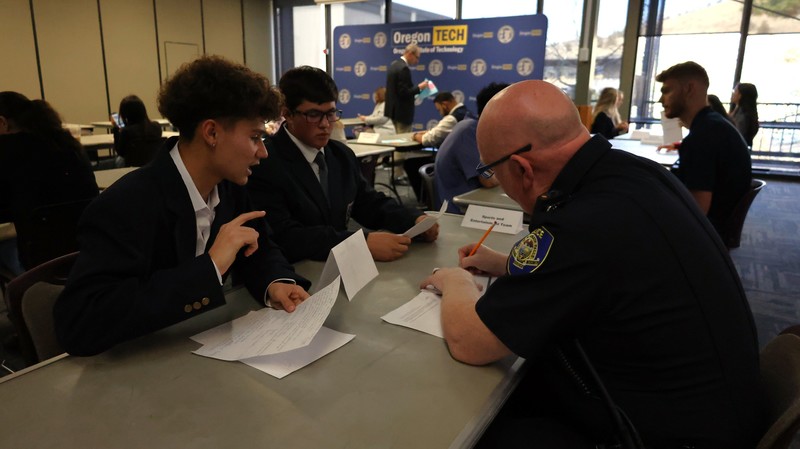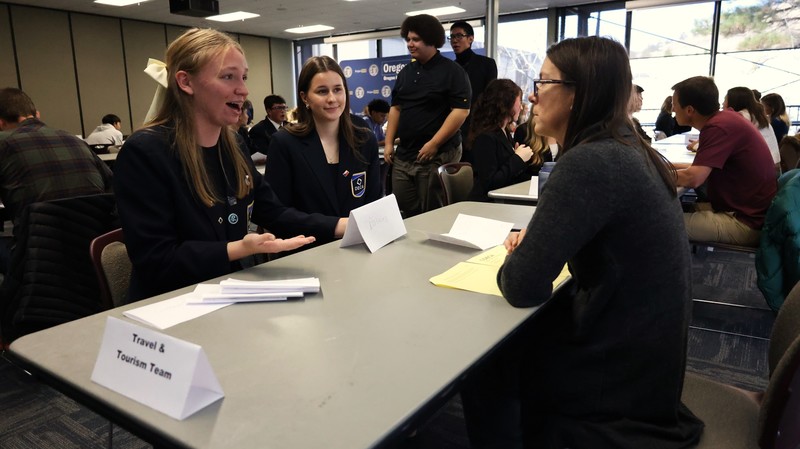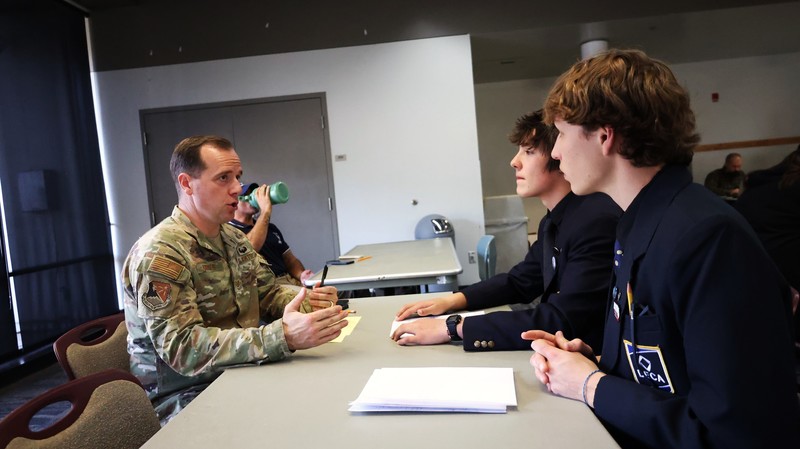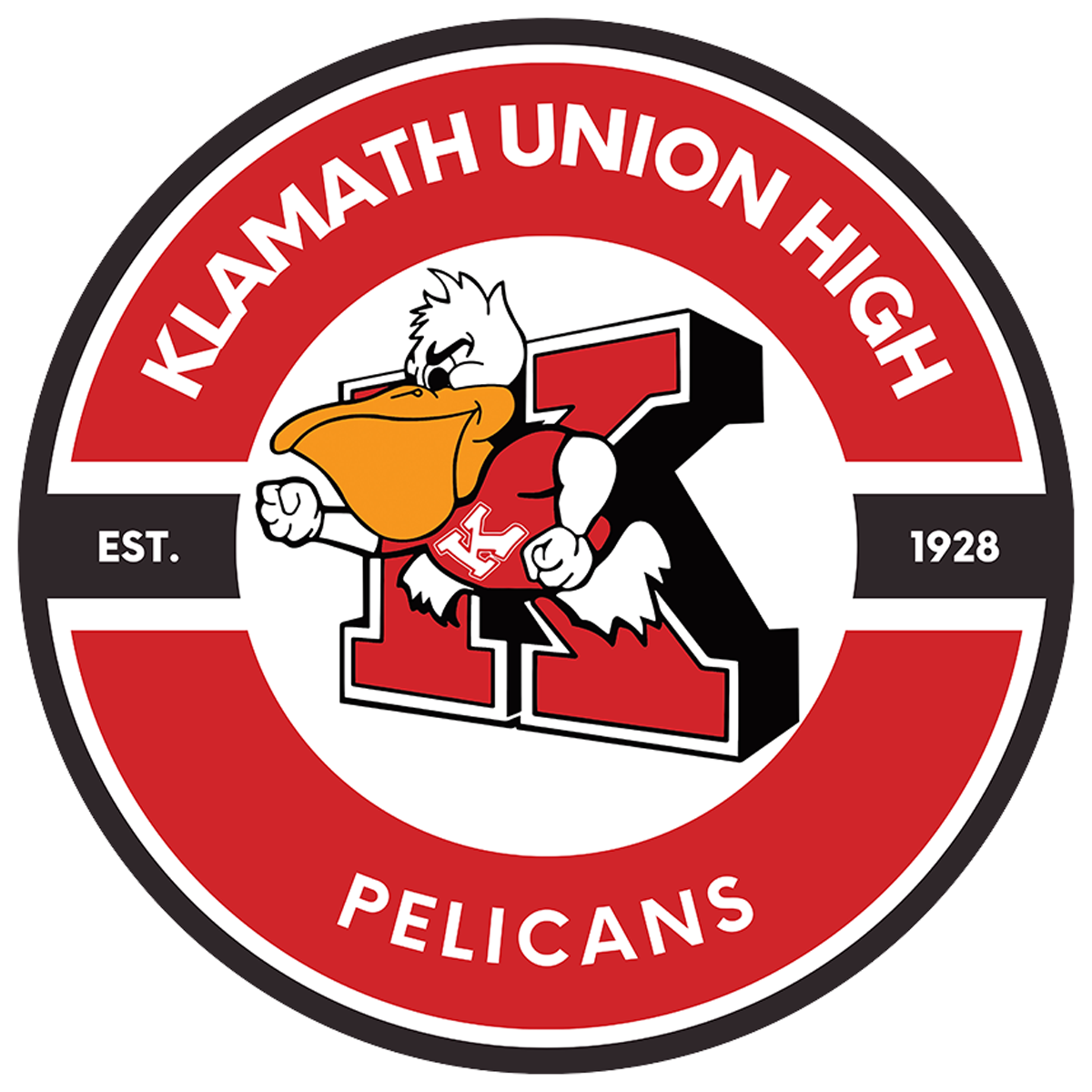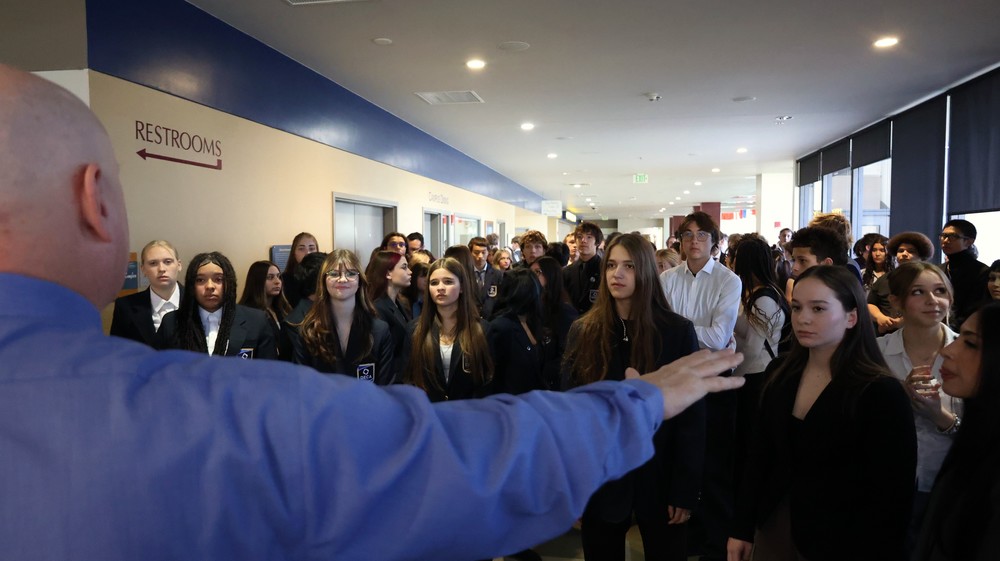More than 200 Distributive Education Clubs of America (DECA) students from across Southern Oregon filled Oregon Tech’s campus Friday morning as Klamath Union High School hosted its annual DECA District Competition, the largest event of its kind held in Klamath Falls. Hallways usually home to college students and engineering majors instead buzzed with high-schoolers clutching role-play packets, practicing introductions under their breath and adjusting ties or jackets before stepping into their competitive events.
For a full gallery, go to the KFCS Facebook page here: https://www.facebook.com/Klamath.Falls.City.Schools
For KU DECA advisor Joel McPherson, the day is less about scores and more about growth. Before the first round began, McPherson gathered volunteer judges for a quick briefing, reminding them that for many students, this was their very first time competing.
“A lot of these students may have never done a role play before,” McPherson said. “So what I like to ask is that we take that into consideration. We want them to learn from the experience and decide if this is something they want to come back and do. This is really a skill-building opportunity.”
McPherson encouraged judges to focus on the bigger-picture categories rather than penalizing first-time nerves, and to offer short, constructive comments at the bottom of their score sheets, which is feedback students often rely on to prepare for state and national competition.
For Klamath Union junior Thomas Biggs, KU’s reputation in DECA is something he feels proud to uphold. Last year’s event at Oregon Tech was his first, a moment he walked into unsure of what to expect. Now, after competing at nationals, known as the International Career Development Conference (ICDC), he returns as an officer helping guide newer KU students in DECA.
“The biggest thing about being an officer is to lead by example,” Biggs said. “Last year it was all new. Now I’m trying to show others, ‘Here’s how you do it. Here’s how you prepare. Here’s how you walk into an interview with confidence.’”
Biggs said preparation is crucial, from weekly practice role plays in McPherson’s classroom to rehearsing at home in front of a mirror. It’s a rhythm Biggs believes pays off not only competitively but far beyond high school.
“I think if you’re very good at DECA, that would help you more in the workplace than almost any other class, in my opinion,” Biggs said. “My interview skills have improved so much.”
KU sophomore Audriana Morehouse remembers exactly what it felt like to compete for the first time.
“My first year, it was definitely more scary,” Morehouse said. “I was worried I wouldn’t even know what I was doing.”
Now in her second year, she feels the growth and shift in confidence that comes with being in DECA.
“You get full creative liberty,” Morehouse said. “You read the role play, come up with a solution, and present it. There aren’t that many strict rules; it’s flexible. I’m a lot more comfortable this year.”
Morehouse hopes to qualify for nationals someday and already sees KU DECA as something special in her short time in high school. KU DECA has won the Oregon Chapter of the Year award for six consecutive years and routinely sends a number of students to ICDC.
Morehouse gave credit to her fellow DECA members, Aeris Saindon, Jacob Martin, Hope Hartley, Nakia Williams and Tristan-Rayson Tatekaw, who should have a promising year competing in state and national competitions this year.
“Within the DECA community, it’s like another little family,” Morehouse said. “Everyone is super helpful. If you have questions, they really try to make sure you’re set up for success.”
Oregon Tech student Tristan Clark said several business courses encouraged students to observe the competition. Clark, a Grants Pass native, mentioned his Operations Management and Principles of International Business professors Sonja Bickford and Jared Emard, offered extra credit for participating.
“A lot of us from the business courses came out because it ties in with what we’re learning,” Clark said. “I have not been familiar with something like this before. Events like this DECA competition help college students stay connected with the high school programs shaping the region’s future business leaders.”
